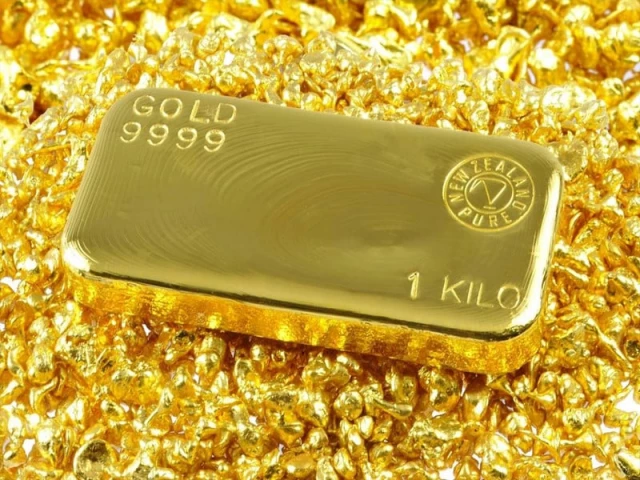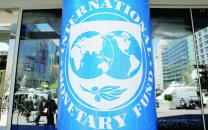Gold prices steady amid global dip
Bullion rose only Rs800 to Rs356,900/tola; rupee loses 10 paisa to 281.47/$

Gold prices in Pakistan remained almost stagnant on Wednesday, as international rates dipped amid a stronger US dollar and renewed optimism over US-China trade talks.
According to the All-Pakistan Gems and Jewellers Sarafa Association (APGJSA), the price of gold in the local market rose only by Rs800 per tola, reaching Rs356,900. The price of 10-gram gold also increased by Rs684 to Rs305,984. This follows a sharp jump of Rs6,100 per tola on Tuesday, when prices hit Rs356,100.
Adnan Agar, Director at Interactive Commodities, noted that gold prices initially spiked to as high as $3,448 amid heightened geopolitical tensions between India and Pakistan. "However, the announcement of fresh trade negotiations between the US and China, expected to begin Saturday, reversed that trend," he said. Gold dropped to an intraday low of $3,360 and is currently trading around $3,384. The market opened at $3,400 today, but the trade talk development is bearish for gold. Prices have declined by nearly $80.
Agar added that if the India-Pakistan tensions de-escalate and trade talks progress positively, gold could retreat further towards the $3,300 level in the coming days.
Globally, gold prices fell more than 1% on Wednesday, pressured by a firmer dollar and US-China trade talks optimism, while the focus is on the Federal Reserve's policy decision due later in the day, according to Reuters.
Spot gold slipped 1.3% to $3,385.48 an ounce. US gold futures lost nearly 1% to $3,392.80.
Meanwhile, the Pakistani rupee registered a marginal decline against the US dollar in the interbank market on Wednesday, slipping by 0.04% amid heightened regional tensions and cautious global sentiment ahead of a key US Federal Reserve policy decision.
The rupee closed at 281.47 against the greenback, losing 10 paisas from Tuesday's closing rate of 281.37.
Speaking to the media, Malik Bostan, Chairman of the Exchange Companies Association of Pakistan (ECAP), highlighted that a contingency mechanism is in place to mobilise overseas Pakistanis' financial support if needed. "We have a swap system that enables the Pakistani diaspora to lend funds for a two-year term, backed by sovereign guarantees," he stated. "This system can raise up to $1 billion per monthamounting to $12 billion annuallyif the need arises."
Bostan noted that a similar strategy proved successful during Pakistan's 1994 financial crisis, when foreign exchange reserves had dwindled to just $400 million. "At that time, exchange companies facilitated inflows worth $10 billion through this very mechanism," he added.





















COMMENTS
Comments are moderated and generally will be posted if they are on-topic and not abusive.
For more information, please see our Comments FAQ